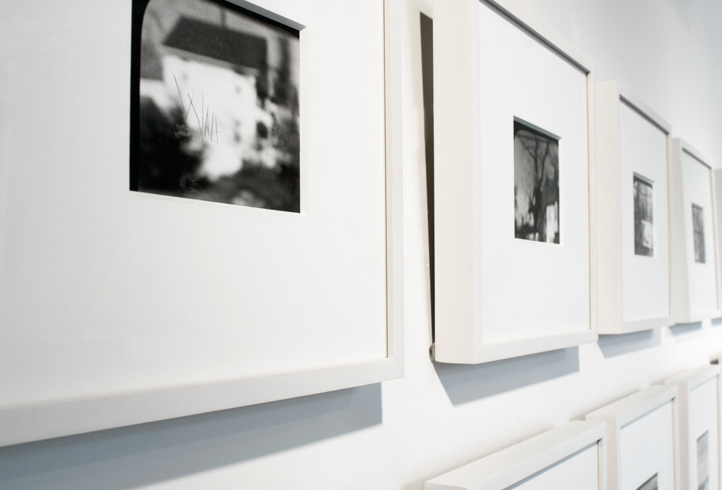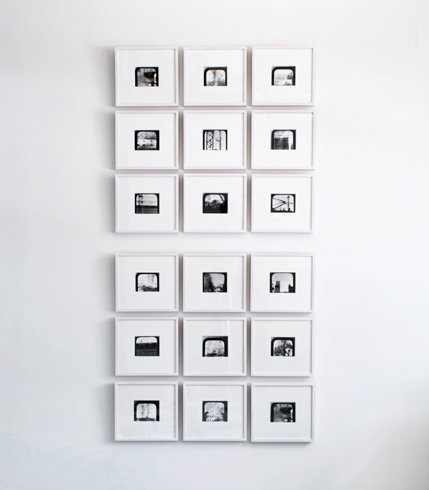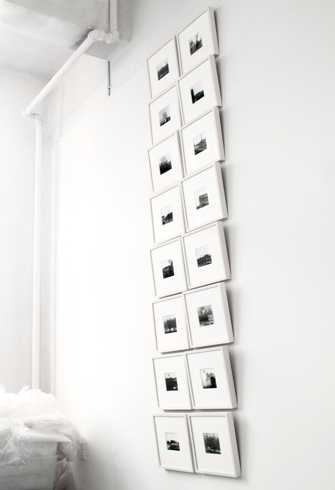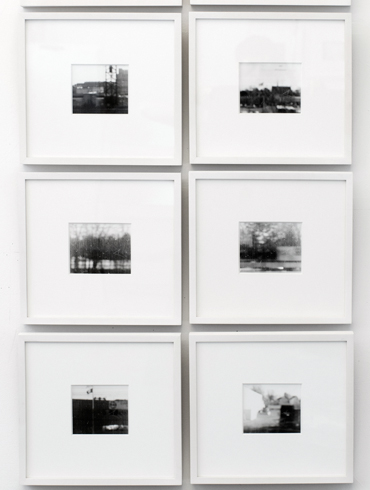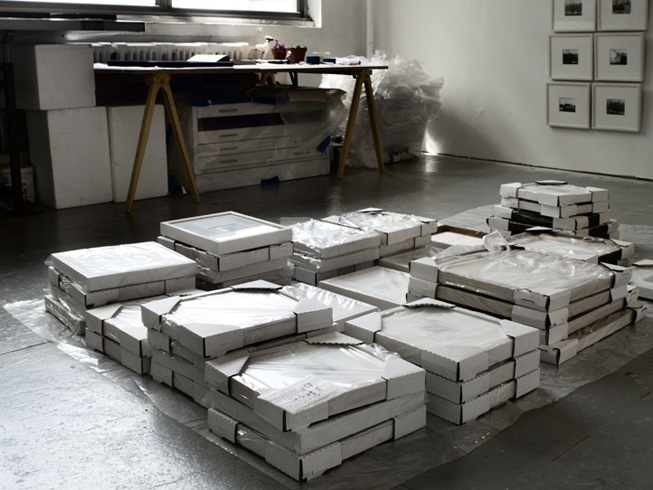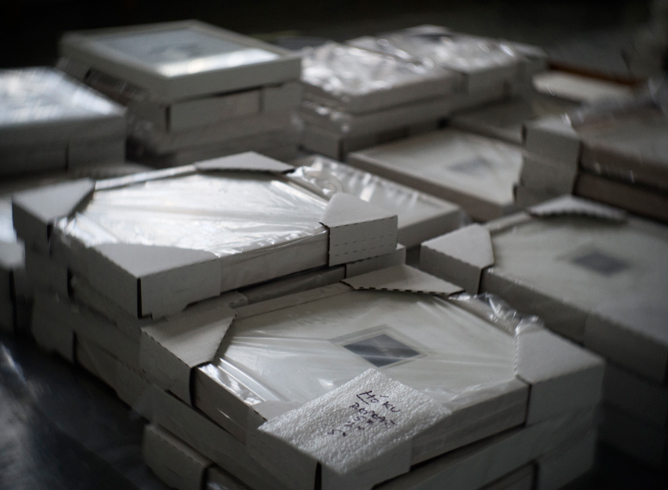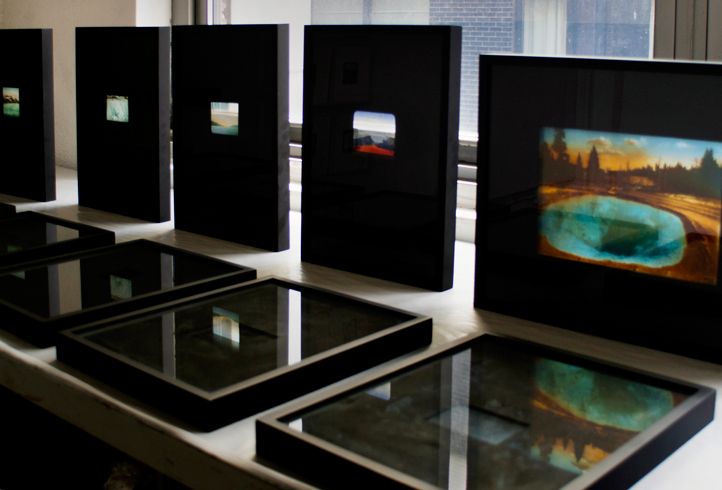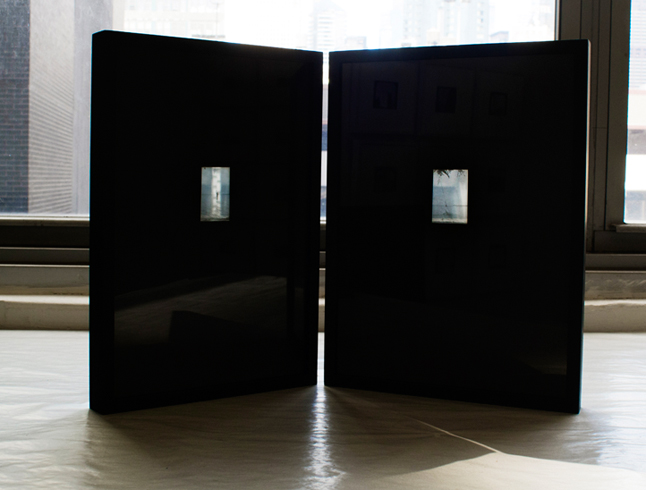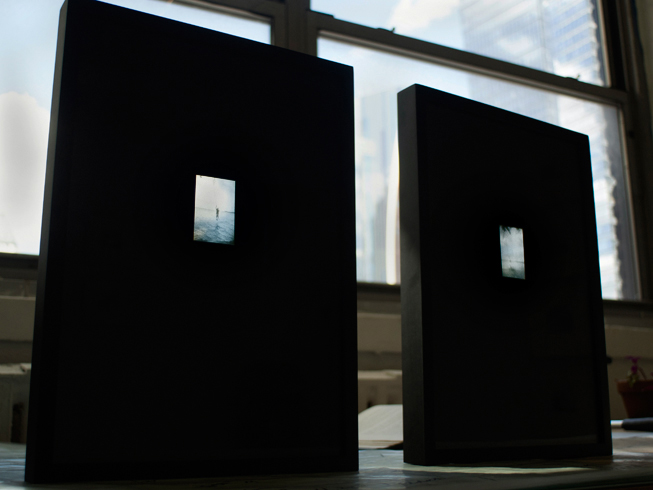Cadence Series, 2015
Installation
Elizabeth Foundation Studio 814
Walt’s Ode (free verse)
“You windows whose transparent shells might expose so much! You doors and ascending steps! You arches!”
Fourteen 8” x 10” black and white prints on silver gelatin paper
Gee (ghazal, 2 stanzas)
Two segments each of 8” x 10” black and white prints on silver gelatin paper
< A (syllabic)
Nineteen 8” x 10” black and white prints on silver gelatin paper
A continued interest in formal rhyme schemes and an interdisciplinary exploration of the interweaving of poetic and visual arts structures influenced the development of Caesura installed in the Elizabeth Foundation 814 studio in 2015. During the spring of 2012, the photographs were taken at rush hour aboard Metro North trains (circa 1970–1990) leaving from Grand Central Terminal to and from Fairfield CT. The series is a metered meditation on time, motion and memory. It is in response to the chance word inscribed here and there by bored commuters, as they memorialized their journey.
An exhibition statement for the installed work, which consisted of the pieces Gee (ghazal), > A (syllabic) and Walt’s Ode (free verse) is a direct quote from The Art of Travel by Alain de Botton, as follows:
Of all modes of transport, the train is perhaps the best aid to thought. The views have none of the potential monotony of those on a ship or a plane, moving quickly enough to allow us to identify objects. They offer us brief, inspiring glimpses into private domains, letting us see a woman at the precise moment when she takes a cup from a shelf in her kitchen, then carrying us on to a patio where a man is sleeping and to a park where a child is catching a ball thrown by a figure we cannot see.
At the end of the hours of train-dreaming, we may feel we have been returned to ourselves – that is, brought back into contact with emotions and ideas of importance to us. It is not necessarily at home that we best encounter our true selves. The furniture insists that we cannot change because it does not: the domestic setting keeps us tethered to the person we are in ordinary life, who may not be who we essentially are.


